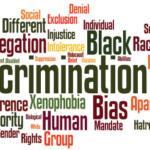Those in positions of power have the greatest opportunity to support those who are at the receiving ends of microaggressions. Yet it is not as simple as intervening to stop microaggressions at the first sign of a microaggression. In fact, it can make things considerably worse. Because microaggressions are inherently subjective, there’s a real risk of a bystander reading into a situation in a way that may not be true to form. Worse yet, bluntly intervening in a situation can take agency away from someone and make them feel even more victimized.
Everything is context dependent, but if you are in a position of power, I would consider it a responsibility to mitigate the effects of microaggressions. Creating environments and permissive structures that allow for microinterventions is absolutely critical. Just as important is fostering a sense of connection and belonging, so a microaggression does not lead to a sense of alienation and isolation, as it often does. Finally, providing venues for education to ensure there is greater awareness of microaggressions can go far in preventing them in the first place, at least in the workplace.
Microaffirmations
More recently, some experts have advocated broadening the scope of understanding microaggressions to include microaffirmations. In contrast to microaggressions, microaffirmations are “small acts in the workplace fostering inclusion, listening, comfort and support for people who may feel unwelcome or invisible in an environment.”5 Microaffirmations also have to be considered carefully, because many well-intentioned microaffirmations may turn into microaggressions (e.g., “your English is really good”).
Melinda Epler, founder and CEO of Empovia (formerly Change Catalyst), provides some guidance for microaffirmations—although she uses the term ally, which has not aged well since 2021.6 Among the most important pieces of advice, in my opinion, is to “mirror the language that someone uses to describe their own identity” and to “invite someone to speak and share their expertise.” This is, no doubt, useful in workplaces, but it is harder to translate into clinical settings as a way to combat, or at least mitigate, microaggressions.
Microaffirmations may also help on the individual level. At first, as a novice in the clinical setting, I wondered whether there was something in the way I spoke or acted that provoked such a microaggression. But mentally debriefing after each of these encounters and engaging in self-microaffirmation built up my confidence that it’s not me that’s the issue.
Let’s Not Become Microaggressors
As I write and rheuminate on the topic of microaggressions, I can’t help but feel a shrinking sense of guilt that I too have engaged in microaggressions. Unfortunately, these are the small things that I’ve done, either knowingly or unknowingly, that have not been as kind or understanding as they should have been. These have been instructed by built-in cultural assumptions that I should have been more critical of. I could very well dismiss microaggression and interpersonal tension as being part of the inescapable human experience and walk away. But I recognize that these are fundamentally excuses to rationalize my own actions—and these thoughts may very well dwell in the minds of those who have engaged in microaggressions against me.


